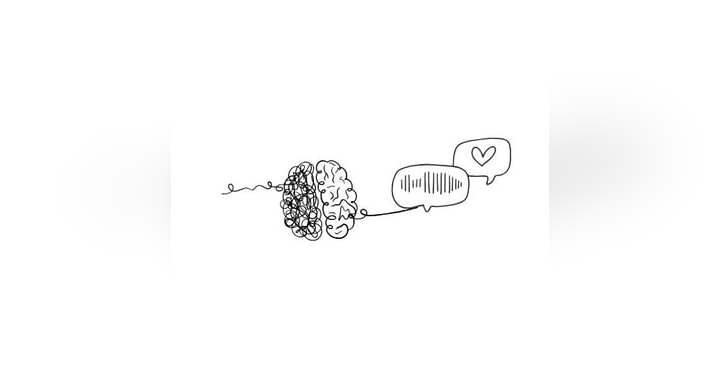Books on Abandonment
Best Books on Abandonment: Essential Reads for Understanding Trauma and Recovery
Abandonment can be a deeply emotional theme in literature. It resonates with readers who have their own experiences with loss, separation, or feelings of being unwanted. Books that focus on this subject often explore the complexities of human relationships and the impact of abandonment on both children and adults. They can provide insights into emotional resilience and healing, offering perspectives that help readers make sense of their feelings or those of others.
When selecting books on abandonment, look for authors who have a strong grasp of emotional depth and narrative style. Consider the type of story you want: fiction might provide a more immersive experience, while non-fiction could offer real-life insights. Pay attention to the author's background and expertise, as this can influence the book’s authenticity and emotional resonance. Choosing the right book can lead to a better understanding of the theme and may help you connect with your own experiences.
We reviewed several books on abandonment to help you find the ones that most effectively address this complex topic.
Best Books on Abandonment
Here you will find a selection of the best books that explore the theme of abandonment. These titles offer insights, stories, and perspectives that can help you understand the impact of abandonment on individuals and relationships. Whether you are seeking healing or simply want to learn more, this list has something for you.
Love Me, Don't Leave Me
This book is a valuable resource for anyone struggling with a fear of abandonment in relationships.
Pros
- Provides clear insights into abandonment issues.
- Includes practical exercises for self-reflection.
- Engaging writing style that keeps you interested.
Cons
- Some readers may find it repetitive.
- Exercises may require additional time and effort.
- It could be a bit heavy for those unfamiliar with the topic.
Reading Love Me, Don't Leave Me can be eye-opening. It helps you realize how deep your fears of abandonment may run. The book breaks down concepts into simple ideas that are easy to grasp. Many people appreciate its straightforward approach to complex emotions.
The exercises in the book are particularly useful. They allow you to explore your feelings and thought patterns deeply. Engaging with these activities can lead to important self-discoveries. You may find that they help clarify your emotional responses in relationships.
While the content is very helpful, some may feel the book repeats certain ideas. This could be a drawback if you're looking for a quicker read. Still, the insights and exercises provided outweigh this issue, making it a strong choice for personal growth.
Journey from Abandonment to Healing
This book is a strong choice if you’re looking to understand and heal from feelings of abandonment.
Pros
- Provides clear steps to help with healing.
- Offers relatable stories and insights.
- Engaging exercises that deepen understanding.
Cons
- Some concepts might feel heavy at times.
- The length may be daunting for some readers.
- Requires personal reflection, which can be challenging.
Reading "The Journey from Abandonment to Healing" can feel like a comforting embrace when dealing with heartache. The author breaks down the complex emotions that arise after loss and guides you through five vital stages.
You may find that the practical exercises help you connect with your feelings more deeply. As you read, you might notice that the examples resonate with your own experiences. This connection is significant because it shows you’re not alone. The heartfelt stories shared can provide solace during tough times. It’s encouraging to reflect on how others have navigated similar paths.
Keep in mind that while it feels good to explore these emotions, the journey can be tough. You may find some sections evoke strong feelings, and that’s normal. Overall, this book offers valuable tools for healing, making it a worthwhile read for anyone facing abandonment.
Abandonment Recovery Workbook
This workbook is a valuable resource designed to help you heal from abandonment, heartbreak, and loss.
Pros
- Provides a structured approach to dealing with emotional issues.
- Written in clear language that is easy to understand.
- Offers practical exercises to aid in healing.
Cons
- Focuses primarily on romantic abandonment, which may not suit everyone's needs.
- Some readers might find the workbook format cumbersome.
- Limited depth on topics outside of personal relationships.
Using the Abandonment Recovery Workbook can feel like having a supportive friend guiding you through tough times.
The exercises are helpful and encourage self-reflection, making it easier to work through feelings of grief and loss. It’s structured in a way that allows you to take it step-by-step.
Many who have used it appreciate the clear instructions and relatable language. You may find that the tips and exercises resonate with your experiences. It can help you identify the roots of your emotional challenges and provide tools to cope. That said, if your situation does not involve romantic relationships, the book might feel a bit narrow.
Some readers prefer a more in-depth exploration of other types of abandonment, such as familial or social. Yet, if you are looking for a straightforward workbook to guide your healing process, this can be a great addition to your reading list.
Inner Child Recovery Workbook
This workbook is a great choice if you want to start healing from childhood trauma or abandonment.
Pros
- Easy-to-follow prompts and activities
- Designed for reflection and deep healing
- Suitable for those without professional therapy experience
Cons
- Might need time to work through each section
- Some exercises may feel repetitive
- It requires personal commitment to see results
The Inner Child Recovery Workbook offers practical tools to help you connect with and heal your inner child.
With clear exercises and guiding prompts, it sets a supportive tone that can feel like having a compassionate friend alongside you. You'll find it easy to navigate the 132 pages filled with activities aimed at overcoming past trauma.
Many users appreciate how simple the language is. This makes it approachable, even for those who may not have prior experience with therapy. The workbook encourages you to explore deep feelings and memories at your own pace. This flexibility is helpful for those who may feel pressured in a therapy setting. Keep in mind that patience is key with this workbook. It encourages thorough exploration, which can sometimes lead to repetitive feelings in exercises.
However, if you put in the effort, the tools provided can lead to deeper self-awareness and healing. If you are ready to take that step, this workbook could be a meaningful addition to your journey.
Healing Your Wounded Inner Child
This workbook is a valuable tool for anyone looking to address childhood trauma and find emotional stability.
Pros
- Offers practical exercises for personal growth.
- Well-researched content that resonates deeply.
- Engages you with insightful reflections on your inner child.
Cons
- Some readers may want supplemental audio material.
- Limited pages might not suit everyone’s preference for in-depth guides.
- A few users found it less impactful than expected.
You may appreciate how "Healing Your Wounded Inner Child" provides clear steps to confront past pain.
Many exercises encourage you to reflect on your experiences, helping you understand your deeper feelings. The layout is user-friendly, making it easy to engage with the material. The workbook draws from Cognitive Behavioral Therapy, which adds a structured approach to healing.
Readers have shared positive experiences about connecting with their inner child and working through emotional barriers. This book has motivated many to confront fears and reclaim self-love. However, some feel that the workbook’s length limits its content. It might not cover every aspect you wish it would.
Plus, if you're someone who prefers audio formats, you may find the lack of an audio version disappointing. Still, this workbook stands as a solid choice for personal development.
Anxious Attachment Recovery
This book is a solid choice if you want to tackle abandonment fears while improving your relationships.
Pros
- Offers clear strategies for overcoming anxious attachment.
- Engaging writing style that makes it easy to read.
- Provides practical insights backed by psychological principles.
Cons
- Some concepts may require deeper personal reflection to fully grasp.
- Limited length might leave you wanting more depth on certain topics.
- Focuses mainly on anxious attachment, which might not cover all attachment styles in detail.
You will find that "Anxious Attachment Recovery" is very helpful in understanding how anxious attachment affects your relationships. The book presents a thoughtful approach to healing, which makes it relatable for anyone looking to build healthier connections. The author's style is easy to follow, making complex ideas about anxiety and attachment clear.
Practical strategies allow you to put theory into action, which can lead to meaningful change in your life. You may appreciate how the text ties personal stories back to key concepts. While the book covers a lot, some readers could feel it's brief. You might want more in-depth analysis on specific attachment issues. Even so, it succeeds in its aim to provide readers with tools for emotional growth. If you're open to self-reflection, you'll likely find valuable insights that resonate with your own experiences.
Buying Guide
When choosing books on abandonment, consider a few key factors. This helps you find the right fit for your reading needs.
Topic and Style
Think about what topic interests you most.
Some books focus on fiction, while others might be nonfiction or self-help. Here are some examples:
- Fiction: Stories that explore feelings and experiences related to abandonment.
- Nonfiction: Books that discuss psychological aspects or personal accounts.
- Self-help: Guides that offer ways to cope with feelings of abandonment.
Author Background
Research the authors.
Check their qualifications and experiences. Are they psychologists, writers, or have they faced abandonment? This can help you gauge the book's credibility.
Reviews and Recommendations
Look for reviews online.
Reader feedback can provide insights into the book's themes and writing quality. Consider checking:
- Online retailers: Customer reviews can give a sense of popularity.
- Book clubs: Recommendations from other readers can help narrow your choices.
Page Count and Complexity
Check the length of the book.
If you prefer quick reads, look for shorter ones. Also, think about complexity. A book should match your comfort level with the topic.
Price and Format
Decide on your budget. Books can vary in price.
Also, choose a format that works for you, like:
- Paperback: Easy to carry around.
- E-book: Convenient for digital devices.
- Audiobook: Great for listening on the go.


















